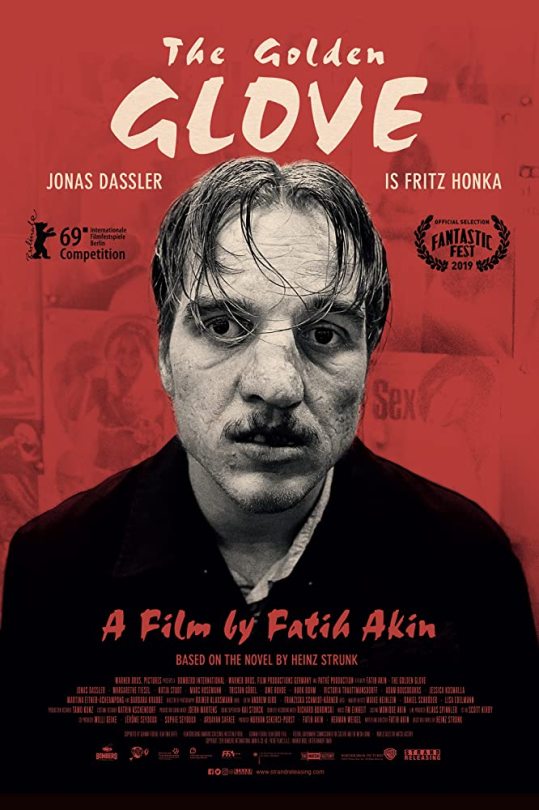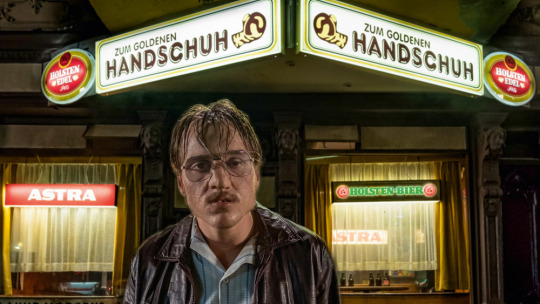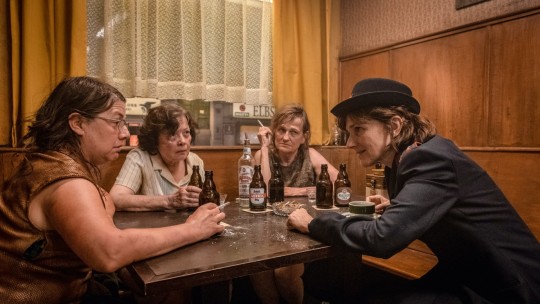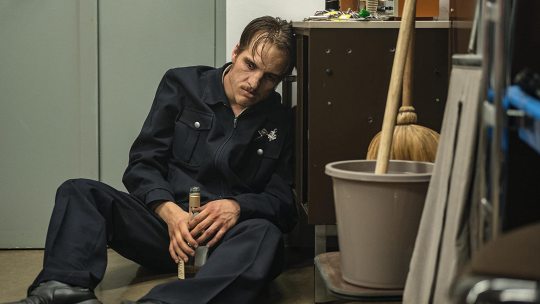#that contradicts everything i say about divorcing your feelings of self-worth from what you produce
Explore tagged Tumblr posts
Note
i think about your fics often. your words have had a positive impact on me and i would like you to know that
this is so sweet omg i fear i did start to cry immediately. thank you so much 💛💛💛💛💛 this means a lot!!!
#fic love#anon#asks#xoxoxoxox#answered#genuinely appreciate this#thank you for this#all i ever want is to write something that resonates with people and leaves an impact#where people really *feel* something#and i think this is a big fear and struggle for me#this desire to earn love and respect#that contradicts everything i say about divorcing your feelings of self-worth from what you produce#because you should never have to EARN that#anyway#i share this so people who may also struggle with this don't feel alone#just know that i am here for you#cheering everyone on as they write and pour their hearts out on the page#something that takes a lot of courage and hard work#sending this after my last ask was really kind of you
10 notes
·
View notes
Text
BLOGTOBER 10/7/2020
I missed THE GOLDEN GLOVE at Fantastic Fest last year. It was one of my only regrets of the whole experience, but it was basically mandatory since the available screenings were opposite the much-hyped PARASITE. As annoying as that sounds, it was actually a major compliment, since what could possibly serve as a consolation prize for the most hotly anticipated movie of the year? Needless to say, I heard great things, but I could never have imagined what it was actually like. I'm still wrapping my mind around it.

Between 1970 and 1975, an exceptionally depraved serial killer named Fritz Honka murdered at least four prostitutes in Hamburg's red light district. Today, we tend to think of the archetypal serial killer in terms of ironic contradictions: The public is attracted by Ted Bundy's dashing looks and suave manner, and John Wayne Gayce's dual careers as politician and party clown. Lacking anything so remarkable, we associate psychopathy with Norman Bates' boy-next-door charm, and repeat "It's always the quiet ones" with a smirk whenever a new Jeffrey Dahmer or Dennis Nilsen is exposed to the public. The popular conception of a bloodthirsty maniac is not the fairytale monster of yore, but a wolf in sheep's clothing, whose hygienic appearance and lifestyle belie his twisted desires. In our post-everything world, the ironic surprise has become the rule. In this light, THE GOLDEN GLOVE represents a refreshing return to naked truth.

To say that writer-director Fatih Akin's version of the Fritz Honka story is shocking, repulsive, and utterly degenerated would be a gross understatement. We first meet the killer frantically trying to dispose of a corpse in his filthy flat, wallpapered with porno pinups, strewn with broken toys, and virtually projecting smell lines off of the screen. One's sense of embodiment is oppressive, even claustrophobic, as the petite Honka tries and fails to collapse the full dead weight of a human corpse into a garbage bag, before giving up and dismembering it, with nearly equal difficulty. The scene is appalling, utterly debased, and yet nothing is as shocking as the killer's visage. When he finally turns to look into the camera, it's hard to believe he's even human: the rolling glass eye, the smashed and inflated nose, the tombstone teeth and cratered skin, are almost too extreme to bear. Actually, suffering from a touch of facial blindness, I had to stare intently at Honka's face for nearly half the movie before I could fully convince myself that I was, in fact, looking at an elaborate prosthetic operation used to transform 23 year old boy band candidate Jonas Dassler into the disfigured 35 year old serial murderer.

Though West Germany remained on a steady economic upturn beginning in the 1950s and throughout the 1970s, you wouldn't know it from THE GOLDEN GLOVE. If Honka's outsides match his insides, they are further matched by his stomping grounds in the Reeperbahn, a dirty, violent, booze-soaked repository for the dregs of humanity. Though its denizens may come from different walks of life, one thing is certain: Whoever winds up there, belongs there. Honka was the child of a communist and grew up in a concentration camp, yet he swills vodka side by side with an ex-SS officer, among other societal rejects, in a crumbling dive called The Golden Glove. The scene is an excellent source of hopeless prostitutes at the end of their career, who are Honka's prime victims, as he is too frightful-looking to ensnare an attractive young girl. These pitiful women all display a peculiarly hypnotic willingness to go along with Honka, no matter how sadistic he becomes; this seems to have less to do with money, which rarely comes up, and more to do with their shared awareness that for them, and for Honka too, it's been all over, for a long time.

Not to reduce someone’s performance to their physical appearance, but ???
To call Dassler's portrayal of Honka "sympathetic" would be a bridge too far, but it is undeniably compelling. He supports the startling impact of his facial prostheses with a performance of rare intensity, a full-body transformation into a person in so much pain that a normal life will never become an option. His physical vocabulary reminded me of the stage version of The Elephant Man, in which the lead actor wears no makeup, but conveys John Merrick's deformities using his body alone. Although there is an abundance of makeup in THE GOLDEN GLOVE, Dassler's silhouette and agonized movements would be recognizable from a mile away. In spite of his near-constant screaming rage, the actor manages to craft a rich and convincing persona. During a chapter in which Honka experiments with sobriety, we find a stunning image of him hunched in the corner of his ordinarily chaotic flat, now deathly still, his eyes gazing at nothing as cigarette smoke seeps from his pores, having no idea what to do with himself when he isn't in a rolling alcoholic rampage. The moment is brief but haunting in its contrast to the rest of the film, having everything to do with Dassler's quietly vibrating anxiety.

Performances are roundly excellent here, not that least of which are from Honka's victims. The cast of middle-aged actresses looking their most disastrous is hugely responsible for the film's impact. These are the kinds of performances people call "brave", which is a euphemism for making audiences uncomfortable with an uncompromising presentation of one's own self, unvarnished by any masturbatory solicitation. Among these women is Margarete Tiesel, herself no stranger to difficult cinema: She was the star of 2012's PARADISE: LOVE, a harrowing drama about a woman who copes with her midlife crisis by pursuing sex tourism in Kenya. Her brilliant, instinctive performance as one of Honka's only survivors--though she nearly meets a fate worse than death--makes her the leading lady of a movie that was never meant to have one.

So, what does all this unpleasantness add up to, you might be asking? It's hard to say. THE GOLDEN GLOVE is a film of enormous power, but it can be difficult to explain what the point of it is, in a world where most people feel that the purpose of art is to produce some form of pleasure. This is the challenge faced by difficult movies throughout history, like THE GOLDEN GLOVE's obvious ancestors, HENRY: PORTRAIT OF A SERIAL KILLER, MANIAC and THE TEXAS CHAIN SAW MASSACRE. Describing unremitting cruelty with relentless realism is not considered a worthy endeavor by many, even if there is real artistry in your execution; some people will even mistake you for advocating and enjoying violence and despair, as we live in a world where huge amount of movie and TV production is devoted to aspirational subjects. (The fact that people won't turn away from the Marvel Cinematic Universe movies, no matter how monotonous and condescending they become, should tell you something) How do you justify to such people, that you want to make or see work that portrays ugliness and evil with as much commitment as other movies seek to portray love, beauty, and family values? Why isn't it enough to say that these things exist, and their existence alone makes them worth contemplation?

A rare, perhaps exclusive “beautiful image” in THE GOLDEN GLOVE, from Fritz Honka’s absurd fantasies.
You may detect that I have attempted to have this frustrating conversation with many people, strangers, enemies, and friends I love and respect. I find that for some, it is simply too hard to divorce themselves from the pleasure principle. I don't say this to demean them; some hold the philosophy that art be reserved for beauty, and others have a more literary feeling that it's ok to show characters in grim circumstances, as long as the ultimate goal is to uplift the human spirit. Even I draw the line somewhere; I appreciate the punk rebellion of Troma movies as a cultural force, but I do not enjoy watching them, because I dislike what I perceive as contempt for the audience and the aestheticization of laziness--making something shitty more or less on purpose. A step or three up from that, you land in Todd Solondz territory, where you find materially gorgeous movies whose explicit statement is that our collective reverence for a quality called "humanity" is based on nothing. I like some of those movies, and sometimes I even like them when I don't like them, because I'm entranced by Solondz's technical proficiency...and maybe, deep down, I'm not completely convinced about "humanity", either. However, I don't fight very hard in arguments about him; I understand the objections. Still, I've been surprised by peers who I think of as bright and tasteful, who absolutely hated movies I thought were unassailable, like OLDBOY and WE NEED TO TALK ABOUT KEVIN. In both cases, the ultimate objection was that they accuse humans of being pretentious and self-deceptive, aspiring to heroism or bemoaning their victimhood while wallowing in their own cowardice and perversity. Ok, I get it...but, not really. Why isn't it ever wholly acceptable to discuss, honestly, what we do not like about ourselves?

The beguiling thing about THE GOLDEN GLOVE is that, although it is instantly horrifying, is it also an impeccable production. The director can't help showing you crime scene photos during the ending credits, and I can't really blame him, when his crew worked so hard to bring us a vision of Fritz Honka's world that approaches virtual reality. But it isn't just slavishly realistic; it is vivid, immersive, an experience of total sensory overload. Not a square inch of this movie has been left to chance, and the product of all this graceful control is totally spellbinding. I started to think to myself that, when you've achieved this level of artifice, what really differentiates a movie like THE GOLDEN GLOVE from something like THE RED SHOES? I mean, aside from their obvious narrative differences. Both films plunge the viewer into a world that is complete beyond imagination, crafted with a rigor and sincerity that is rarely paralleled. And, I will dare to say, both films penetrate to the depths of the human soul. What Fatih Akin finds there is not the same as what Powell and Pressburger found, of course, but I don't think that makes it any less real. Akin's film is adapted from a novel by Heinz Strunk, and apparently, some critics have accused Akin of leaving behind the depth and nuance of the book, to focus instead on all that is gruesome about it. This may be true, on some level; I wouldn't know. For now, I can only insist that on watching THE GOLDEN GLOVE, for all its grotesquerie, I still got the message.
#blogtober#2020#the golden glove#fatih akın#heinz stronk#jonas dassler#margarete tiesel#difficult cinema#horror#slasher#serial killer#period piece#adaptation#historical#biopic#fritz honka#i may have been watching a lot of powell and pressburger movies recently#sorry...
24 notes
·
View notes